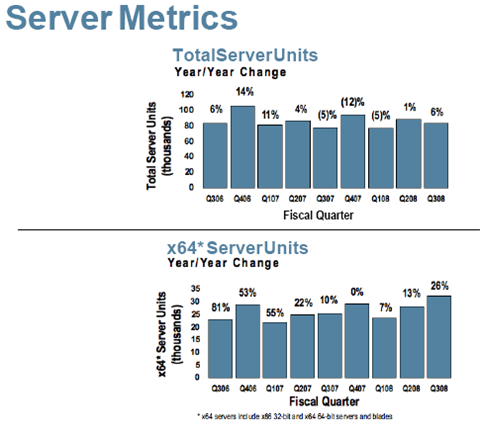Sun's open source strategy overshadowed by legacy businesses

Sun reported a nightmare quarter, elicited more cold Java analogies than I can count and announced layoffs due to a weak economy. Can open source move the needle at Sun and spark some growth? In a word: No.
Following Sun's dismal quarter, Matt Asay asks whether open source can save the company (Techmeme). After all, Sun has acquired MySQL and has become a big open source community member. The game plan for Sun: Utilize open source to spur more sales of hardware and services.
The only way open source could reinvigorate Sun is via a breakup, a scenario that just won't happen.
Why? Sun is saddled with too many big revenue legacy businesses for open source to make much of a difference standalone or in some sort of synergy strategy.
It's telling that most of the Wall Street analysts were focused on Sun's legacy business and weaker than expected server and storage revenue. Meanwhile, it's highly unlikely that Sun's open source business will ever compare to its other businesses.
To wit: Red Hat--the most successful open source company--had revenue of $523 million for the fiscal year ending Feb. 29. Sun has almost $14 billion in annual revenue. In other words, the best case scenario for Sun's open source business is to be a rounding error in the grand scheme of things.
Indeed, Sun mentioned open source and MySQL 17 times on its earnings conference call, but most Wall Street analysts sounded like Brent Bracelin at Pacific Crest Securities:
The fiscal Q3 (March) shortfall in revenue and earnings validated our concern that Sun's exposure to legacy UNIX servers and tape storage products-which account for more than 50% of sales-heightens execution risks, particularly during periods when IT budgets are under pressure.
Sun's argument is that open source will turbo charge the rest of its businesses, but the jury is still out on that one. IBM is a massive open source player. Does it really move more servers? It's a tenuous connection. Services and the urge to standardize have a much larger impact on IBM's hardware sales.
